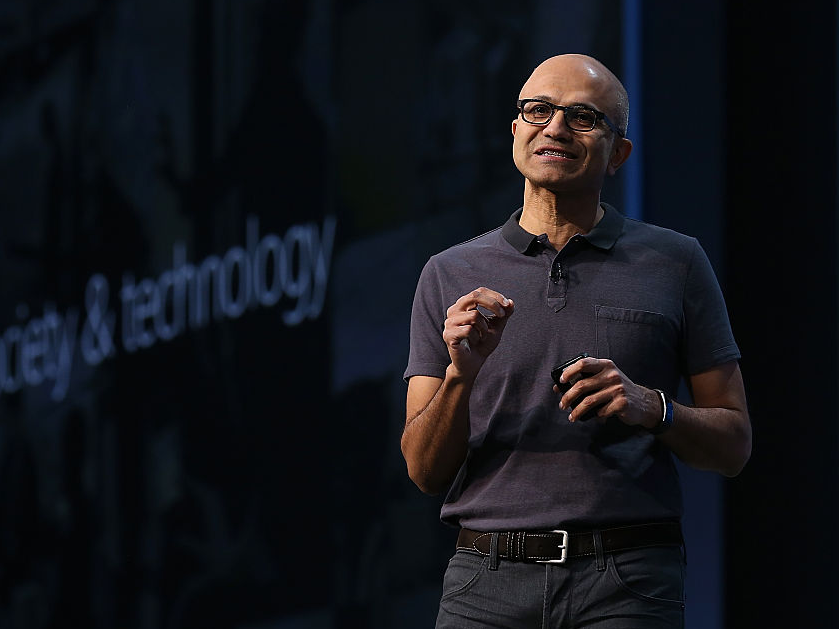- A recent ranking of the best CEOs for women caught some flack on social media.
- Commentators criticized the lack of female CEOs on the list.
- The ranking reflects the dearth of women at the top of major companies.
Job site Comparably’s recent ranking of the 50 best CEOs for women in 2018 had one notable characteristic.
The vast majority of the CEOs were male.
Only four women made the list: Accenture’s Julie Sweet, General Motors’ Mary T. Barra, Lockheed Martin’s Marilyn A. Hewson, and Vertafore’s Amy Zupon. None of them squeaked into the top 10, either.
The rankings were compiled from employee ratings filed on Comparably between May 23, 2017 and May 23, 2018. The participants in this survey were all female employees of companies with over 500 employees. At least 50 female employees from a company had to participate in the survey for the organization to be considered.
The list sparked some controversy online, as commenters picked up on CNBC's write-up of the all-male top 10 names on the list.
https://twitter.com/drewharwell/status/1008780179831914496?ref_src=twsrc%5Etfw
https://twitter.com/alexrkonrad/status/1008783646571065344?ref_src=twsrc%5Etfw
https://twitter.com/LeahFessler/status/1008778091618013187?ref_src=twsrc%5Etfw
It's 2018, and all the best CEOs for women...are men. pic.twitter.com/R99KvxX6QO
— mattie kahn (@mattiekahn) June 18, 2018
Comparably founder and CEO Jason Nazar told Business Insider that he agrees with the reaction.
"The overall takeaway is we need more female CEOs, especially at large companies," he told Business Insider. "We put out this list to create more transparency, to showcase what companies and what leaders are best for women. Even though we intended to put out a list that was celebrating leaders that are doing a great job for women, we see that the core issue is that there just aren't enough women leaders."
Female CEOs are an increasingly rare find at top organizations. CNBC reported that in 2018, only 24 women lead Fortune 500 companies. Women - who accounted for 50.9% of the US population in the last census - make up a measly 4.8% of Fortune 500 CEOs.
Former McDonald's USA president Jan Fields previously told the New York Times about how it can be tricky to navigate the "good old boy" culture that permeates the upper echelons of so many companies.
"It's very lonely," she said. "I was at a high level playing in a golf foursome with all high-level men. One said, 'I didn't know you knew how to play.' I said, 'You never asked me.' I never drank with them. I never tried to be one of the guys. I spent more energy on performance."
She was later fired in 2012, after a monthly drop in profits.
"I always had to do better than anybody else to be considered equal," Fields told the New York Times.
But the problem doesn't start in the C-suite. Business Insider's Rachel Gillett wrote in 2017 that "women are missing out on promotions" at all levels, according to research from McKinsey & Co. and Lean In.
That collective lack of professional advancement snowballs over time. The odds of a company appointing a female CEO clearly dwindle when there's a scarcity of women clinging to the highest rungs of the corporate ladder.
As Diane Lim, the principal economist at The Conference Board, put it:
"Best CEOs for Women" are all *men.* This is not really something to celebrate, but a big clue as to why more women haven't risen to the top of businesses. Relying on the "goodness of men" and male CEOs in particular is kind of scary (IMHO). https://t.co/vahaPahCOn
— Diane Lim (@economistmom) June 18, 2018

